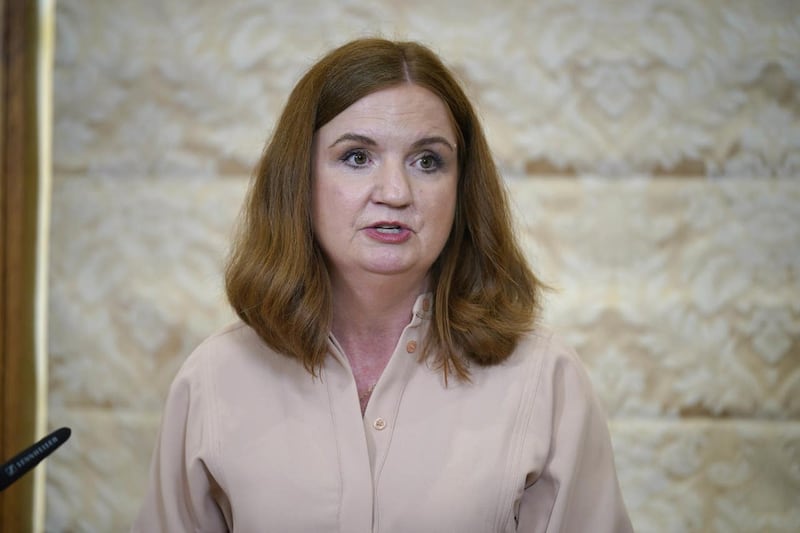Stormont’s Executive Office has claimed the Covid inquiry prevents it from explaining how and when WhatsApp messages sent by former ministers during the pandemic were deleted.
Counsel to the inquiry Clair Dobbin KC expressed “grave concern” when it emerged on Tuesday that devices, including those belonging to former first minister Baroness Arlene Foster and deputy first minister Michelle O’Neill, were among those wiped by civil service technicians.
The head of the regional civil service Jayne Brady has been ordered to provide a witness statement to explain the circumstances.

It is understood permanent secretaries were told in 2021 to retain all data that could be deemed useful to the pandemic inquiry.
Ms Dobbin said the Executive Office had provided a report to the inquiry last week and that further information had been requested.
The barrister also said that efforts were continuing to recover some of the material which had been lost.
Read more: Jeffrey Donaldson challenged over Paul Frew Covid vaccine deaths claims
North’s troubled past linked to rise in conspiracy theory beliefs
“That some devices have been reset does not mean that there isn’t WhatsApp material, there is,” the counsel to the inquiry said.
“We will continue to work to secure that WhatsApp material.”
A barrister representing the Northern Ireland Covid-19 Bereaved Families for Justice group said his clients shared the inquiry’s concerns over the data loss.
TUV leader Jim Allister has written to Ms Brady seeking answers to a raft of questions about the deleted messages.
He described the matter as being of “significant public interest”.








